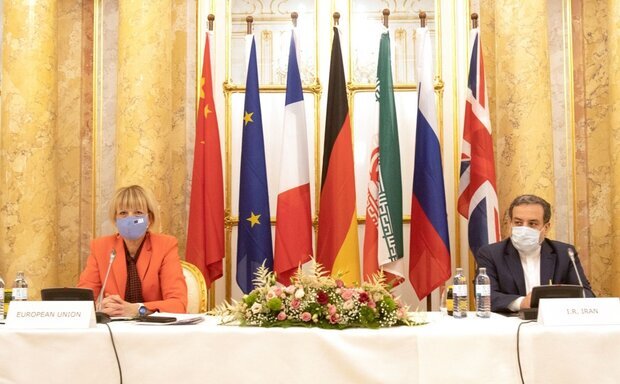JCPOA participants: U.S. cannot invoke sanctions snapback on Iran

TEHRAN – The participant states of the Joint Commission of the Joint Comprehensive Plan of Action (JCPOA) have asserted that the U.S. cannot invoke the UN sanctions snapback against Iran, emphasizing that full implementation of the agreement by all sides remains crucial.
In a joint statement issued on Tuesday evening, the participants reaffirmed the importance of preserving the JCPOA – commonly known as the Iran nuclear deal – recalling that it is a key element of the global nuclear non-proliferation architecture, as endorsed by United Nations Security Council Resolution 2231 (2015).
The Joint Commission meeting was chaired, on behalf of EU High Representative Josep Borrell, by EEAS Secretary General Helga-Maria Schmid and was attended by representatives of China, France, Germany, Russia, the United Kingdom and Iran at the level of political directors and deputy foreign ministers.
The meeting was held upon a letter sent in July by Iran’s Foreign Minister Mohammad Javad Zarif to Schmid regarding the non-adherence of European countries to the nuclear deal.
U.S. Secretary of State Mike Pompeo has announced that all UN sanctions against Iran will be reinstated on September 20 after the U.S. “activated the snapback mechanism”.
However, the claim was strongly denounced by other signatories of the nuclear deal including Iran, the EU, Russia and China.
On the United States’ efforts to reinstate the UN sanctions on Iran, the participants reaffirmed that the United States unilaterally announced its cessation of participation in the JCPOA on 8 May 2018 and that it had not participated in any JCPOA-related activities subsequently.
According to the statement, participants reconfirmed that it therefore could not be considered as a participant state. In this regard, participants also reaffirmed their various statements and communications made previously at the UN Security Council including that of the High Representative of 20 August as the Coordinator of the JCPOA to the effect that the U.S. cannot initiate the process of reinstating UN sanctions under UNSC resolution 2231.
Participants welcomed the joint statement of Iran and the IAEA dated 26 August, the implementation of which has already started, and they recalled the important role of the IAEA as the sole impartial and independent international organization responsible for the monitoring and verification of nuclear non-proliferation commitments.
They also reiterated the importance of nuclear non-proliferation projects, in particular “the Arak modernization project” and the stable isotope project in Fordow. Taking into account the potential consequences of the U.S. decision in May to end the Arak waiver, participants reiterated their strong support and collective responsibility for the continuation of the project.
Speaking after the meeting, Deputy Foreign Minister Abbas Araghchi said Iran’s JCPOA partners do not recognize the U.S. as a participating side and “do not regard this country as entitled to use the mechanisms of the JCPOA or Resolution 2231.”
“The convergence among the participants sent an important message to the world about the position of the JCPOA’s members,” Araghchi said, Press TV reported. “This is, of course, the stance of the majority of the international community. The mood at the UN Security Council is also similar.”
“All JCPOA members and the majority of the world community are against America’s unilateral policies and undermining multilateralism and global institutions in international relations. Everyone is complaining about the measures that the U.S. takes to destroy international bodies,” he said.
The Iranian diplomat further said that a number of initiatives have been put forward on ways to safeguard the JCPOA against Washington’s unilateralism.
“All signatories are determined not to allow the U.S. to impose its own will [on others] and unilaterally kill a deal that has the support of the international community and the Security Council,” he added.
He also said Iran’s reduction of its commitments under the JCPOA is in fact a response to the other side’s lack of commitment to the deal.
All participants welcomed the recent joint statement of Iran and the IAEA which came after the IAEA director-general’s trip to Iran, Araghchi said.
Schmid also said after the meeting that it was “important” that the participants — Iran, France, Britain, Germany, Russia and China — were “united in resolve to preserve” the nuclear deal despite the challenges.
“Just finished chairing #JCPOA Joint Commission. Important to see that participants are united in resolve to preserve the #IranDeal and find a way to ensure full implementation of the agreement despite current challenges,” she wrote in a post on her Twitter account.
MH/PA
